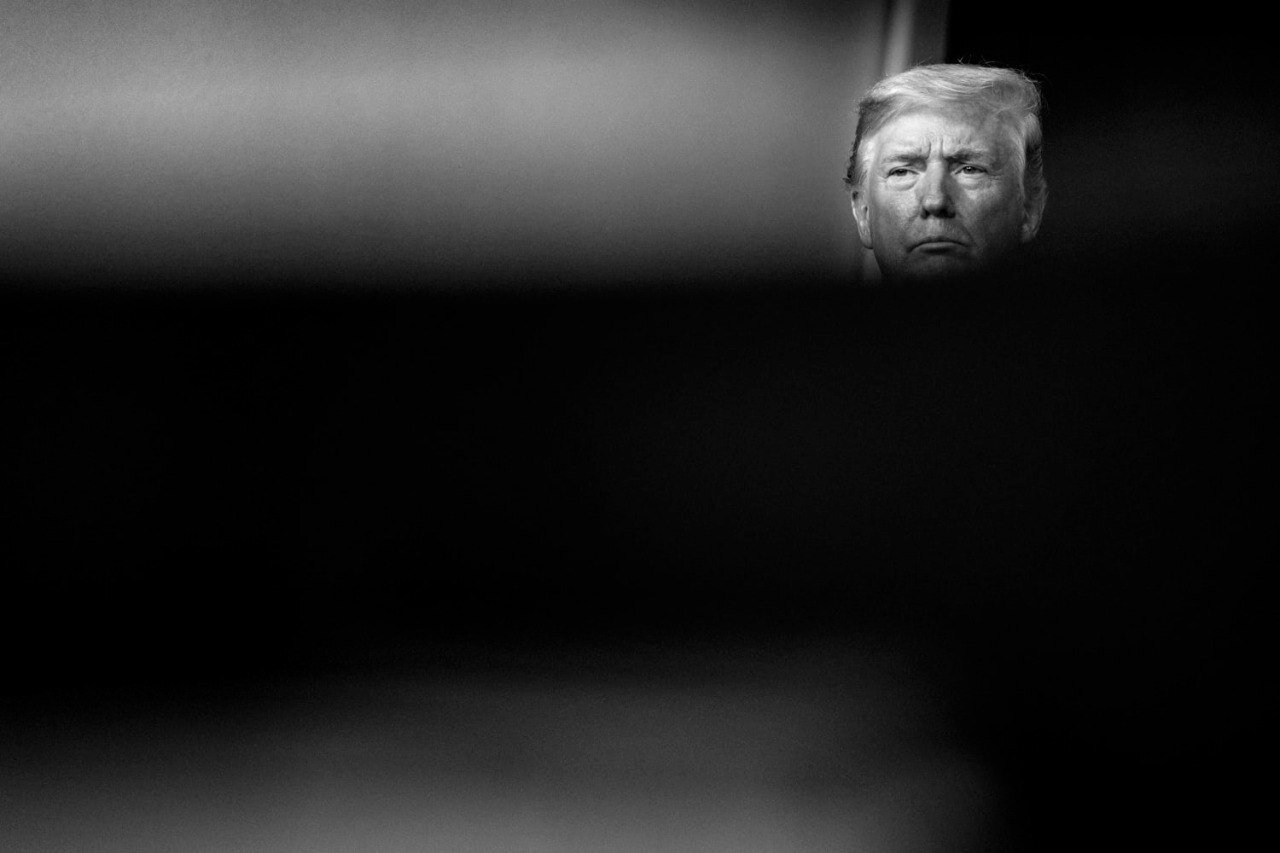What should Iran’s policy towards Trump be like?
TEHRAN – January 20, 2025, marks the return of Donald Trump to the presidency, prompting global attention on the anticipated direction of U.S. foreign policy under his second term. His first term, from 2017 to 2021, introduced significant shifts in U.S. foreign policy, particularly impacting relationships with key allies. During his first term, Trump’s approach


TEHRAN – January 20, 2025, marks the return of Donald Trump to the presidency, prompting global attention on the anticipated direction of U.S. foreign policy under his second term. His first term, from 2017 to 2021, introduced significant shifts in U.S. foreign policy, particularly impacting relationships with key allies.
During his first term, Trump’s approach challenged established norms in transatlantic relations. He frequently questioned the value of NATO, accusing European members of insufficient defense spending and threatening U.S. withdrawal—moves that deeply unnerved European leaders. This was coupled with trade disputes, as Trump imposed tariffs on steel and aluminum imports from the EU, triggering retaliatory measures.
While relations with Canada were more outwardly cordial, Trump still strained ties by imposing tariffs on Canadian steel and aluminum, citing national security concerns. He also initiated a renegotiation of the North American Free Trade Agreement (NAFTA), which he deemed detrimental to U.S. interests.
Looking ahead, Trump’s recent communications suggest a continuity, and potentially an intensification, of these policies. On December 20th, he stated that the EU should increase its purchases of U.S. oil and gas to avoid tariffs. Additionally, he suggested on social media that Canada would benefit from becoming the 51st U.S. state, hinting at the potential for territorial expansion which followed more incendiary expansionistic remarks on Greenland, the Panama Canal, and Mexico.
In West Asia, Trump’s policies led to a significant realignment of relationships. Under Prime Minister Benjamin Netanyahu, Israel experienced notable policy benefits, including the U.S. recognition of Israeli sovereignty over Syria’s Golan Heights. The relocation of the U.S. embassy to al-Quds (a move that prompted strong reactions in the Muslim world) and the facilitation of “normalization” agreements between Israel and several Arab states, such as the UAE and Bahrain, further solidified this shift.
However, these changes were accompanied by significant challenges for other parties in the region. His approach strained bilateral ties across West Asia, and his dealings with Saudi Arabia, the most important Arab partner of the U.S., led the kingdom to strengthen ties with China and later warm up to Iran under Beijing’s mediation.
Trump’s relationship with Iran proved particularly volatile. His administration’s withdrawal from the Joint Comprehensive Plan of Action (JCPOA) in 2018 created a lasting impasse over Iran’s nuclear program. This period culminated in a dangerous escalation when Trump ordered the assassination of Iranian military official Lieutenant General Qassem Soleimani, triggering a missile attack by Iran on the U.S. Ain al-Assad Airbase in Iraq—the first attack on a U.S. installation since World War II.
Trump’s future plans regarding West Asia remain uncertain. While he has publicly voiced support for Israel, he has also indicated a stronger inclination to end the regime’s war in Gaza than his predecessor, Joe Biden. On Iran, Trump has stated his desire to “prevent Tehran from developing nuclear weapons”, while also expressing that he does not seek war. Reports from a reformist Iranian newspaper suggest that Trump has communicated with Iran through Oman, and expressed a desire to de-escalate tensions. However, this assertion is met with skepticism, given his past rhetoric and the selection of advisors and officials known for their hawkish stances toward Iran.
To explore these potential shifts in policy, The Tehran Times recently conducted interviews with multiple experts and officials to discuss the possible future of Iran-U.S. engagements, and how Iran should strategize its future plans.
Abolfath: Iran must enter negotiations regardless of potential results
American affairs expert Amir Ali Abolfath argues that Iran should not shy away from engaging in negotiations with the United States.
Abolfath emphasizes that dialogue between the two nations is a persistent reality, not an occasional event. “Iran and the United States have never truly stopped talking,” he points out. “They’ve engaged in indirect negotiations and relied on third-party intermediaries for years. Furthermore, the nature of negotiations has evolved; in 2024, even a carefully crafted social media post can serve as a form of communication and strategic messaging between parties.”
However, Abolfath tempers his call for engagement with a dose of realism. He says current geopolitical dynamics present significant hurdles to productive talks. “The situation has fundamentally shifted,” he explains. “Iran’s increased power and perceived assertiveness have hardened the West’s stance. Simultaneously, Iran’s skepticism and distrust of the U.S. have deepened.”
He notes that while strained relations between Washington and Tehran predate the 1979 Iranian revolution, the withdrawal of the U.S. from the 2015 nuclear deal under the Trump administration has exacerbated tensions considerably. “While I firmly believe that Iran should pursue negotiations, I must confess that I hold limited optimism about
Rezaei: Iran holds a stronger negotiating position than the 2010s
Ebrahim Rezaei, the speaker for the Iranian Parliament’s Foreign Policy and National Security Committee, believes there are three key considerations when it comes to devising Iran’s strategy in regard to the upcoming U.S. administration: the diminished capabilities of the U.S. government, the constraints it faces, and the evolving dynamics of regional actors.
Rezaei argues that the Trump administration, should it return to power in 2024, will not possess greater capabilities than during its previous term. “Despite extensive efforts to destabilize the Iranian government, the U.S. has been ultimately unsuccessful. The failure of U.S. policies over the past eight years has solidified the resilience of Iran and its ability to withstand external pressures. This means Iran can approach any future negotiations or confrontations from a position of relative strength,” Rezaei declared.
Moreover, the lawmaker emphasized that the complexities of domestic and international issues facing the U.S. government will further limit its capacity to exert influence over Iran. “Multiple simultaneous crises—ranging from the Ukraine conflict to tensions in West Asia—will divert American attention and resources.” This fragmentation of focus, Rezaei argues, will constrain the U.S.’s ability to adopt aggressive policies toward Iran.
In light of these factors, Rezaei advocates for a proactive and assertive Iranian foreign policy. He suggests that Iran should leverage its stability and regional influence to counter any potential aggressive moves by a Trump-led administration. “By adopting a preemptive approach, Iran can safeguard its interests and maintain its sovereignty against external pressures.”
Abbasi: Iran should prioritize ties with China, Russia amid Trump’s hardline team
According to Mohammad Mehdi Abbasi, an expert in North American affairs, the fact that Trump’s inner circle is heavily populated with individuals who hold decidedly anti-Iran views, renders any prospective negotiations unproductive.
“From the Secretary of State and U.S. envoy at the United Nations to the Secretary of Defense and National Security Advisor, nearly every key figure in Trump’s anticipated foreign policy leadership is deeply hawkish and fundamentally opposed to Iran,” Abbasi asserts. “Attempting to engage in talks with individuals who question your integrity and are predisposed to adversarial policies is almost guaranteed to yield no positive outcomes.”
Abbasi further argues that this situation also extinguishes the possibility of achieving specific agreements, such as the prisoner swap deal that occurred during the Biden administration.
Given this challenging backdrop, Abbasi advocates for a strategic pivot towards strengthening ties with China and Russia. He criticizes some Iranian officials for what he perceives as an excessive reliance on Washington. “We must prioritize solidifying our relationships with non-Western powers, especially China and Russia,” Abbasi emphasizes. “We should focus on materializing our strategic agreements with these two nations, as our continued pursuit of fruitless engagement with the West may be interpreted as a lack of commitment towards them.”
Gharemanpour: Isolationists and new figures like Musk could make future different
While many anticipate a further deterioration in relations between the United States and Iran under a second Trump presidency, international affairs analyst Rahman Ghahremanpour argues that such predictions may be premature. He suggests that the complex geopolitical landscape and shifting domestic priorities within the U.S. could significantly influence the trajectory of their relationship, making it far less predictable than a simple repeat of Trump’s first term.
Ghahremanpour emphasizes that the circumstances surrounding a second Trump administration are vastly different than those of his first. “During his initial term, Trump had greater latitude to exert pressure on Iran,” he explains. “Currently, the U.S. is significantly preoccupied with conflicts in Ukraine and Gaza, which could push Iran down the list of Trump’s priorities. The prominent anti-Iran voices within his team are also staunchly anti-China, potentially leading to a redirection of Trump’s focus and resources towards harming Beijing.”
This shift in focus, according to Ghahremanpour, could create a dynamic where Iran is not the primary target of U.S. foreign policy. Moreover, he points to other factors that may shape the future. “The resurgence of isolationist sentiments within the U.S., which favor a more inward-looking approach to American affairs, coupled with the rise of new influential figures like Elon Musk, could further alter the playing field,” he states.
Aslani: A new dynamic opens, but with conditions
West Asia analyst Abbas Aslani cautions against assuming a repeat of Trump’s first term, pointing to significant shifts in Iran’s own position and motivations. He argues that these changes could create a drastically different dynamic, potentially opening up new avenues for negotiation, albeit with firm conditions.
Aslani notes that the landscape has changed significantly since Trump’s first term. “During his initial presidency, Trump was adamant about dismantling the JCPOA, while Iran insisted it wouldn’t consider any new agreements,” he explains. “Today, Iran has scaled back on several of its JCPOA commitments, and even Iranian Foreign Minister Abbas Araghchi has acknowledged that the JCPOA alone is no longer sufficient and that a new deal is necessary.” This fundamental shift in Iran’s position, he suggests, could alter the parameters of any future engagement with Washington.
Aslani further speculates on Trump’s motivations. “It’s possible that Trump’s fixation on dismantling the JCPOA was partly driven by its association with the Democratic Party,” he suggests. “He may now be motivated to secure a significant deal with Iran under his own auspices, giving him a personal stake in any outcome.”
However, Aslani stresses that while Iran should not avoid negotiations with Trump, it should not be willing to accept any deal under any conditions. “It is clear,” he states, “that if Trump continues to pursue a pressure-based approach against Iran, Tehran must disrupt Washington’s calculations as the Leader of the Islamic Revolution has indicated.” As an example, he notes that while Iran currently has no plans to alter its nuclear policies, continued hostility from the U.S. could prompt a reassessment of its nuclear doctrine.
